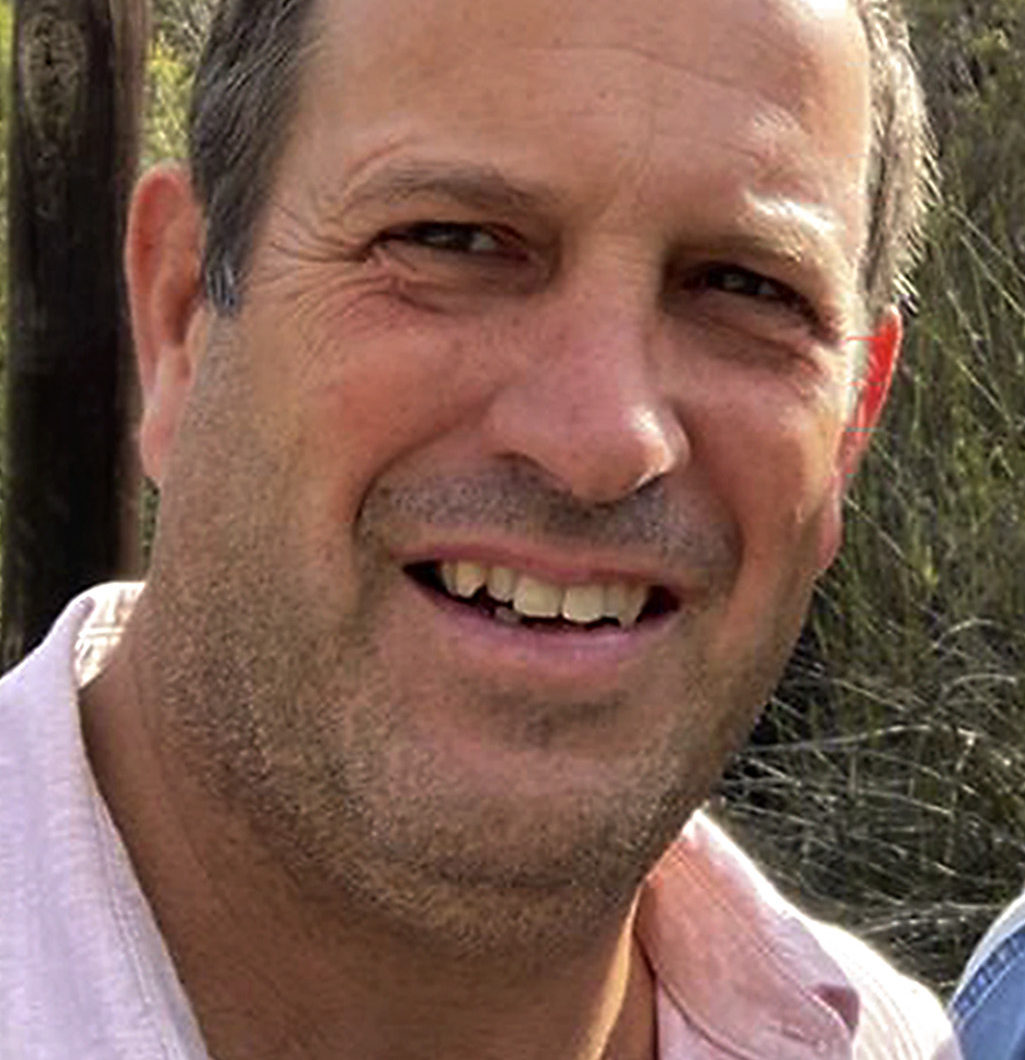A PROVINCE AT BREAKING POINT
Court finds Eastern Cape Department of Health fired CEO to escape dealing with unions

In a scathing judgment, Judge Dennis Davis, sitting in the Labour Appeal Court, has ordered the immediate reinstatement of Dr Roger Walsh at Fort England Hospital in Makhanda. Judge Davis found the department had unlawfully orchestrated Walsh’s transfer and eventual dismissal, to ‘escape dealing with sustained illegality at a facility under their control’.
The Eastern Cape Department of Health has been ordered to immediately reinstate the CEO of Fort England Hospital, Dr Roger Walsh, after the Labour Appeal Court found he had been dismissed to allow the department to escape liability for illegal union behaviour at the facility.
“A court cannot permit anarchy to be rewarded and couch it as being justified in the name of the public interest. That is the route to the destruction of constitutional governance,” Judge Dennis Davis wrote in his Labour Appeal Court judgment.
During his tenure, the former superintendent-general of the Eastern Cape Department of Health, Dr Thobile Mbengashe, had removed the CEOs of the Livingstone, Dora Nginza and Elizabeth Donkin hospitals after they fell out with the unions. Mbengashe resigned from his position in late 2020, but was appointed as a consultant in the office of Premier Oscar Mabuyane. Disciplinary proceedings have been instituted against him for his role in the controversial procurement of medical “scooters” for the department.
The disciplinary hearing instituted against Thulane Madonsela, the CEO of Livingstone Hospital, will be finalised later in April 2021. The hospital has had seven acting CEOs since he and the facility’s management team were removed after a violent strike by the unions. The rest of the management team, including the highly regarded public health expert Dr Mojalefa Maseloa, has since left the employ of the department.
Fort England, a high-security psychiatric facility in Makhanda, looks after about 300 patients with mental health disorders, which include patients admitted to the national maximum security unit housing dangerous and difficult state patients. It is the only hospital in the country where mental assessment of patients accused of sexual violence is undertaken.
Earlier in 2021, contingency plans had to be implemented for the hospital after all its psychiatrists had resigned or retired. Department spokesperson Sizwe Kupelo confirmed that the last two psychiatrists resigned in June 2020 and an approval for recruitment was granted to the hospital by Acting Superintendent-General Dr Sibongile Zungu. “However, the remaining psychiatrists who were set to be interviewed also resigned, so that process has been put at bay.” He said a newly qualified psychiatrist was still awaiting registration and two doctors were sent from other hospitals to help out “while the recruitment processes ensue”.
In August 2018, Walsh was removed by the department from the facility through a forced transfer to Bhisho and subsequently dismissed when he refused to take up another position. His case in the Labour Court was dismissed initially, with Judge André van Niekerk finding that the department had acted in the public interest to restore peace at the hospital. But on Thursday, 1 April the Labour Appeal Court, with Judge Dennis Davis writing the judgment, ruled that Walsh must immediately be reinstated to his position as CEO.

Dr Roger Walsh. (Photo: Supplied)
Judge Davis writes that the question at the heart of the matter was what the right conduct would be for the department to unlock a dispute where (quoting from Judge van Niekerk’s judgment) “trade unions operating in the public healthcare sector in the Eastern Cape who sought to advance their interests and those of their members in what can only be described as brutal acts of thuggery”.
Walsh was appointed as the CEO of Fort England in August 2012.
In papers before court, Mbengashe stated that “there were challenges at Fort England hospital even before the appointment of Dr Walsh; such challenges [were] caused, inter alia, by lack of leadership at the hospital at that time”.
In his founding affidavit, Walsh stated that when he arrived at the hospital, nursing staff and clinicians were at odds, with nurses refusing to take blood on instructions from the doctors, or to interpret for them. Administration was chaotic, there was little structure, absenteeism was rampant, employees were using hospital facilities to run their own personal businesses during working hours, security guards were doing the work of nurses in some instances and many staff members were “inappropriately interacting financially with patients”.
Judge Davis writes that when Walsh sought to respond to these issues, he was met with “considerable opposition”, which triggered a number of unlawful strikes and violent incidents.
In May 2013, National Education, Health and Allied Workers’ Union (Nehawu) members went on strike, but after Walsh’s intervention they returned to work. Next, the Democratic Nursing Organisation of South Africa (Denosa) went on strike, leaving patients unattended. In 2015, shop stewards led a walkout at the hospital’s monthly transformation unit meeting and accused the appellant of acting “like a dictator”, declaring that they refused to recognise him as CEO or to deal with him in any manner.
An invitation from Walsh to discuss the problems was met with more opposition and a petition calling for his removal or resignation.
On 25 January 2016, staff went on an unlawful picket at the hospital. A week later, Walsh was assaulted at the hospital. The department obtained an interdict in February 2016 to stop the unions from “threatening, harassing and intimidating employees and approaching the hospital… save for the tendering of services”.
More meetings and more demands for Walsh’s removal from the hospital followed. Denosa then threatened Walsh and other members of his management team with forceful removal.
The department then appointed an advocate to investigate the complaints and allegations against Walsh.
In her report, Amelia da Silva wrote: “I could not find fault with the management style at Fort England Hospital. The lack of communication between management and the labour force appears to have originated from a time when the workforce stopped attending [meetings] after November 2015. The reason for the withdrawal of the workforce is that management took decisions without consultation and the workforce subsequently felt marginalised and excluded. Management admitted that it took some decisions without consulting the labour force… It is my finding that there is no merit in the accusation from the labour force, represented by the labour unions that management failed to consult with them in respect of [certain categories stipulated by the Labour Relations Act.]”
The unions then rejected Da Silva’s report, threatening to make the hospital ungovernable and burn it down if Walsh did not leave.
On 18 July 2016, 15 employees led by shop stewards entered the wards, offices and support unit armed with sticks and other instruments, intimidating staff and ordering them to leave their work stations. About 15 employees then gathered on the central sports field and marched to the main administration building.
Mbengashe admitted in his affidavit before the court that “it has always been at the back of my mind that the situation at Fort England hospital is unhealthy, especially the interruption of health services which compromised patient care”.
Eventually, Walsh was told that he had no choice but to transfer to Bhisho. When he refused he was dismissed for being absent from work.
Despite a letter from 11 doctors in support of Walsh, Mbengashe then wrote to Walsh asking him to leave the hospital for three weeks “to allow the situation to return to normal”.
In August 2016, a second inquiry was held into complaints against Walsh. This report too found no evidence of harassment, inconsistency and noncompliance with the leave policy; nor evidence to substantiate the allegation that the implementation of hourly leave does not apply to members of management. The report further stated that allegations of poor management and negligence that had affected patients could not be verified.
The only adverse finding in the report was that Walsh did not consult managers about changes that affected their respective divisions.
This report further stated that Walsh’s approach was too “high-handed, autocratic and did not foster or encourage a good working relationship with staff and unions. From the interviews with the staff, it is clear that this was brought to his attention previously where he had committed to change, however, it is clear that he is not willing to do so and has since lost the trust and respect of staff… It is on the above basis and for his safety sake that our recommendation is that the department should consider an appropriate leadership development intervention and implementing an improvement plan or consider transferring the CEO to another facility”, the report added.
In a subsequent meeting, Walsh was then told that he could return to the hospital “with the understanding that the department is unable to guarantee his safety as there is a standoff and the union indicated they do not want the CEO back at Fort England. The CEO was also asked to guarantee that services will not be disrupted and that if such disruption occurs for more than three working days, the CEO will have to be reassigned elsewhere within the department”.
In November 2016, Walsh was told that his “plan of action” had not delivered the desired effect and he should accept a transfer to the Elizabeth Donkin Hospital in Gqeberha/Port Elizabeth or a relocation to the position of health economist in Bhisho. There was no option, in their view, for Walsh to return to the hospital. The next month, Mbengashe said that he did not support Walsh’s return to Fort England and that “it was important for the department to take appropriate steps in the public interest to ensure that Fort England is a stable function institution that provides quality health services to the people of the Eastern Cape”.
Walsh declined the offers of relocation.
In March 2017, he received a letter from the Department of Health stating that it had discovered that he had been “overpaid” for four years and that he had to repay them R2-million. His salary would be reduced by 40%.
Eventually, Walsh was told that he had no choice but to transfer to Bhisho. When he refused he was dismissed for being absent from work.
“When the evidence is taken as a whole, it is correct, as [the department] observes that there can be no suggestion that [its] actions were motivated by bias or malice. But if [the department was] concerned primarily to promote the general welfare of the patients at the hospital, then to allow violent, illegal conduct to trump the constitutional obligations owed by the state to patients requiring healthcare can never be conducted in the public interest.
“In their view, the continuation of [Walsh] as the CEO at the hospital would not have promoted the general welfare of the patients. But that is to allow anarchy to prevail; so long as illegal conduct can be sustained, it must follow that thuggish behaviour that, in this case, compromised the health of vulnerable patients totally dependent on the state to vindicate their [right to healthcare] must triumph.
“The evidence indicates that at most, 50 individuals were involved in the sustained illegal conduct, and in a number of instances, there were no more than 15 employees who were the cause of the disruption.
“It cannot be in the public interest to have preferred illegality over the obligation to provide efficient and effective health care to those in need,” Judge Davis wrote. DM/MC
Like what you’re reading? Sign up to the Maverick Citizen newsletter and get a weekly round-up sent to your inbox every Tuesday. Free. Because paywalls should not stop you from being informed.



















 Become an Insider
Become an Insider
Comments - Please login in order to comment.